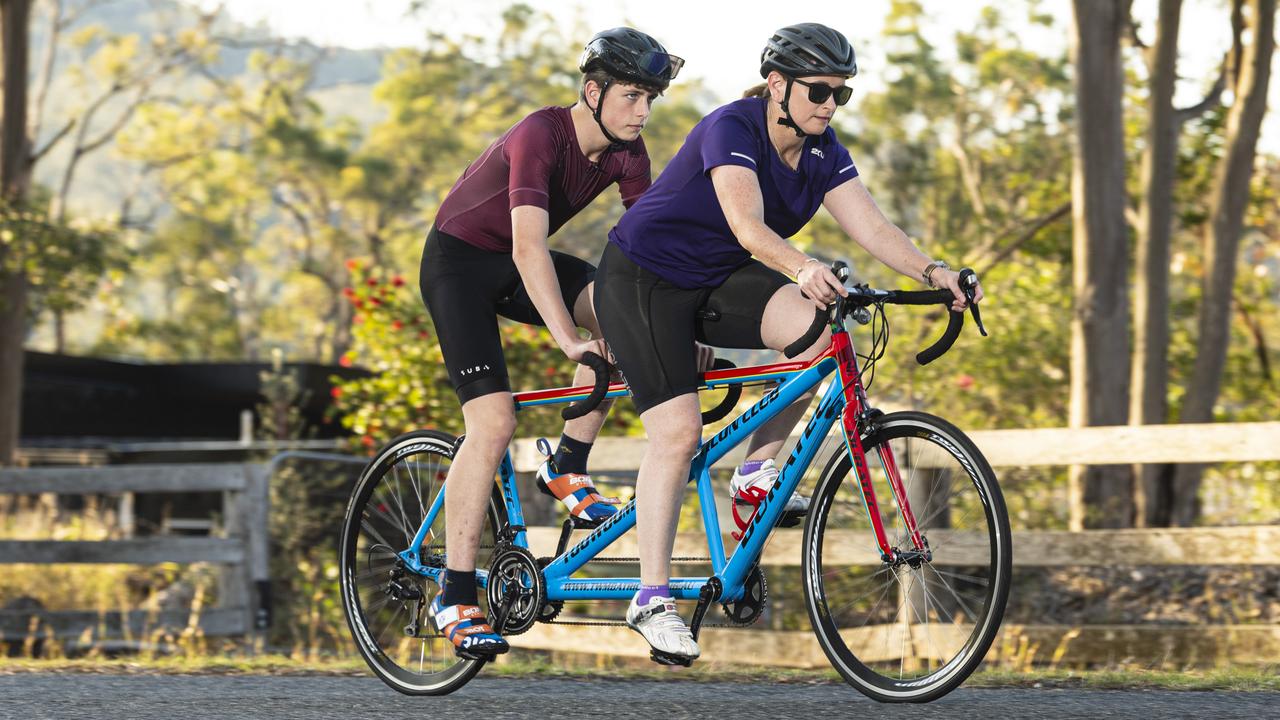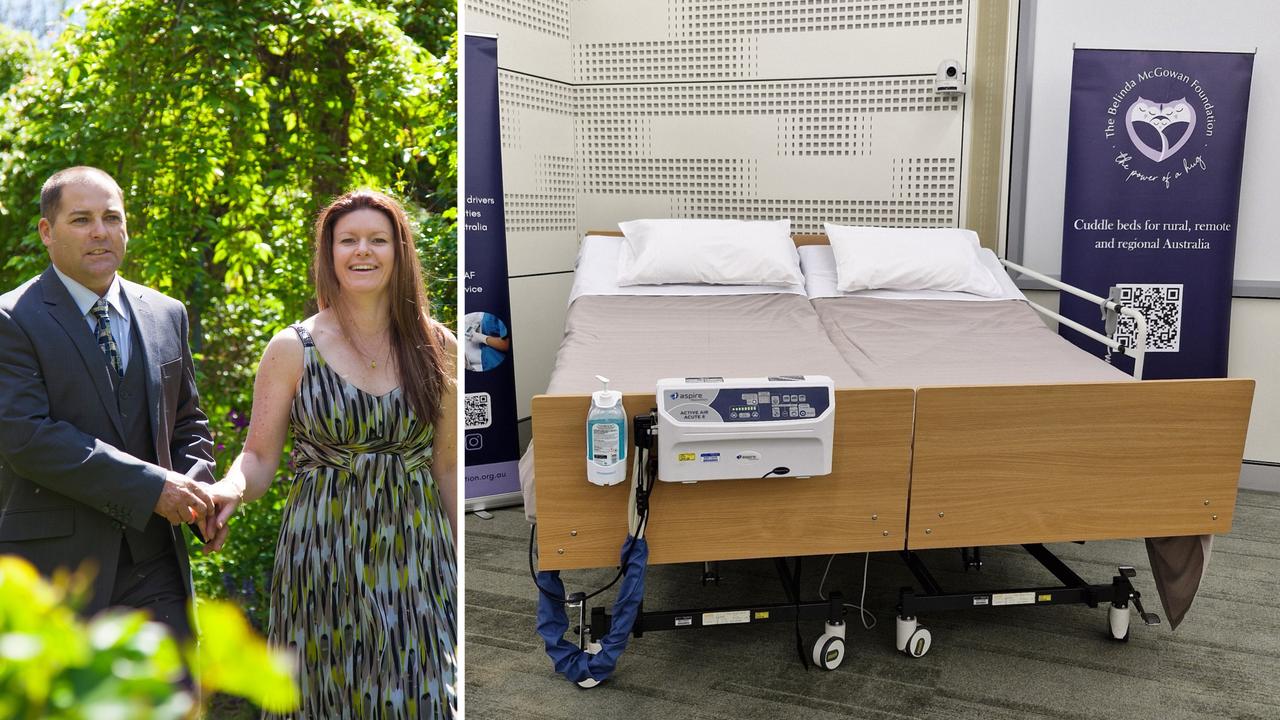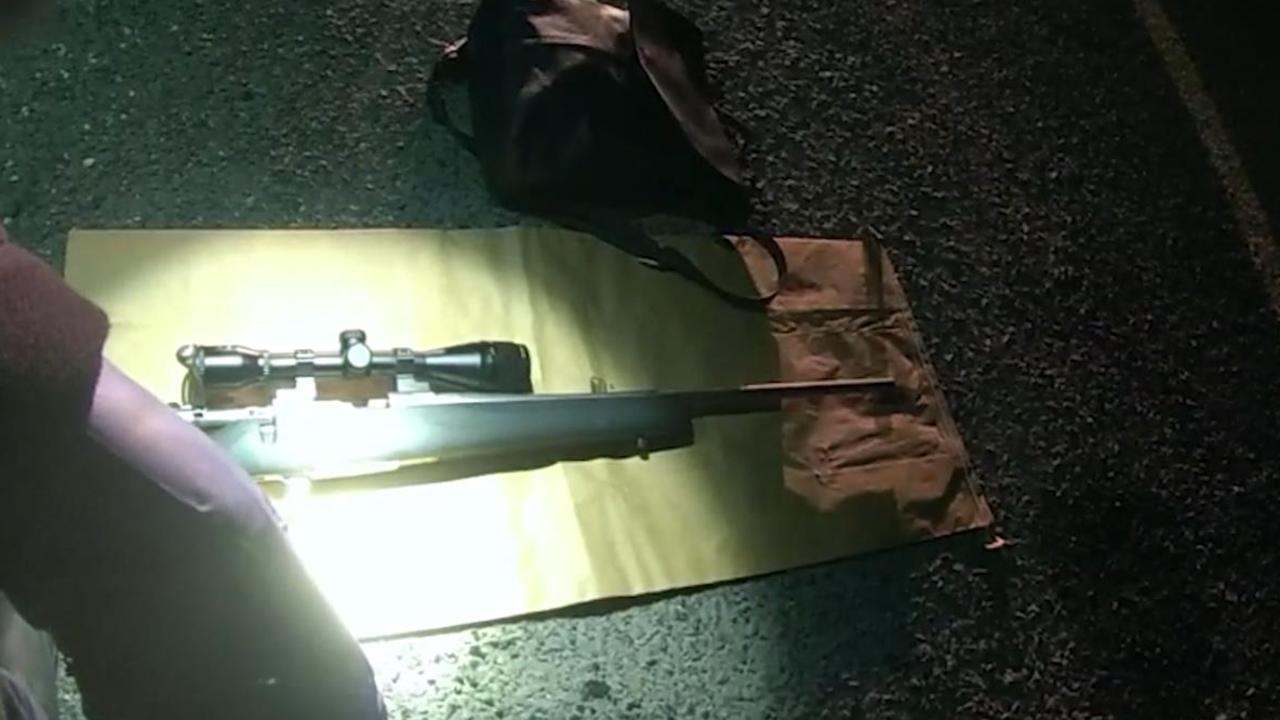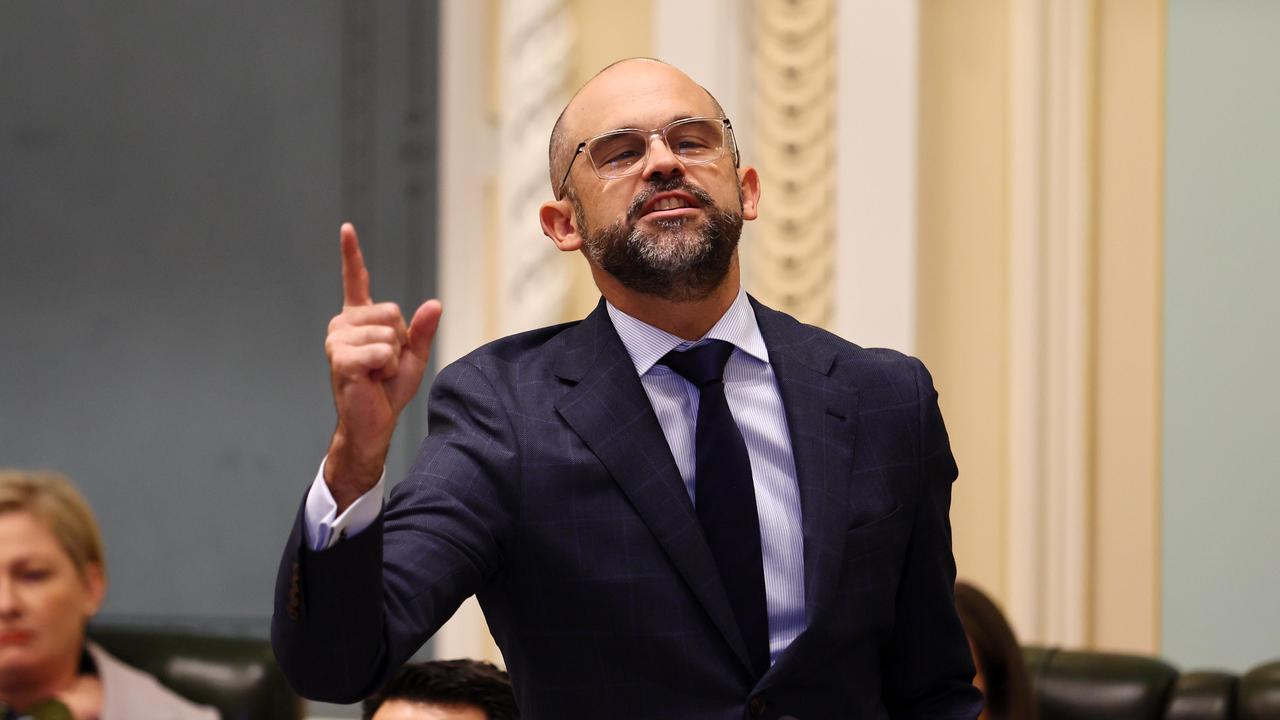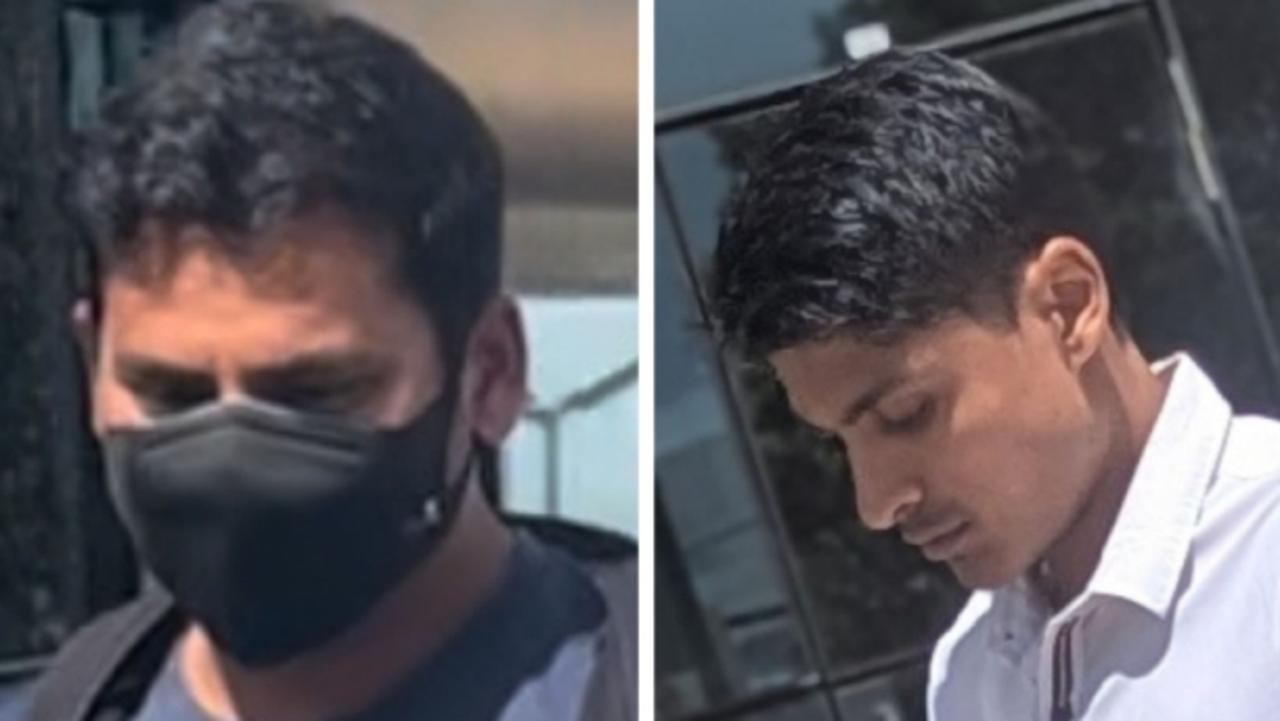Toowoomba teen Mitchell Wilkes won’t let anything stop him – even losing his sight
From climbing Everest Base Camp to competing in triathlons, why losing his sight hasn’t stopped this teen from chasing his goals.
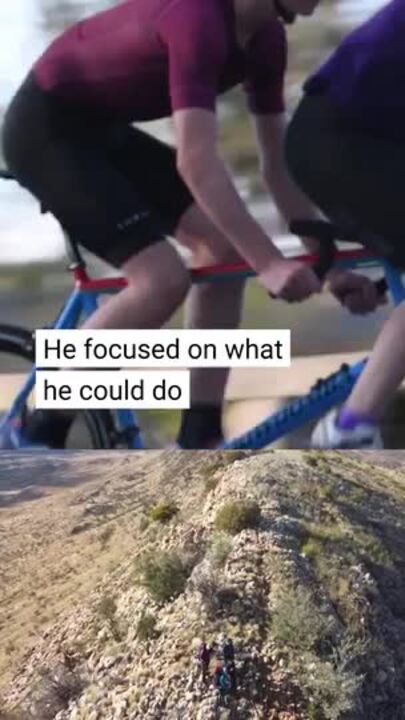
Toowoomba
Don't miss out on the headlines from Toowoomba. Followed categories will be added to My News.
Not every 15-year-old can say they have skydived, walked the Larapinta Trail and visited Everest Base Camp, but not every 15-year-old faces the reality of progressively losing their sight by their 20s.
Three years ago, Lisa Wilkes noticed her son Mitchell couldn’t read car registration numbers, so she booked him in to get his eyes checked.
This revealed an unexpected diagnosis of central vision loss, a genetic condition which affects up to 19,000 people in Australia.
“With a big central blind spot” due to a missing gene, Toowoomba Grammar student Mitchell Wilkes said the biggest problem with his vision is the “details”.
Doctors told Mitchell he would become completely blind sometime in his 20s, and was given a long list of things he’d never be able to do.
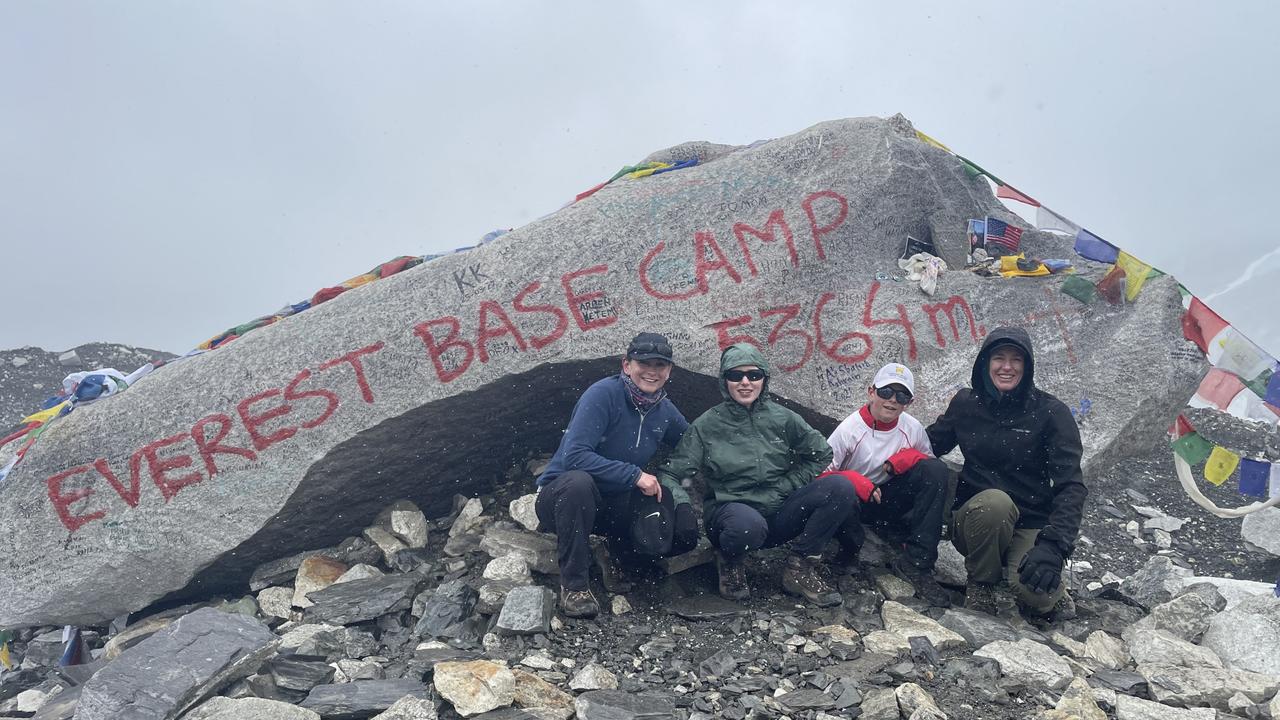
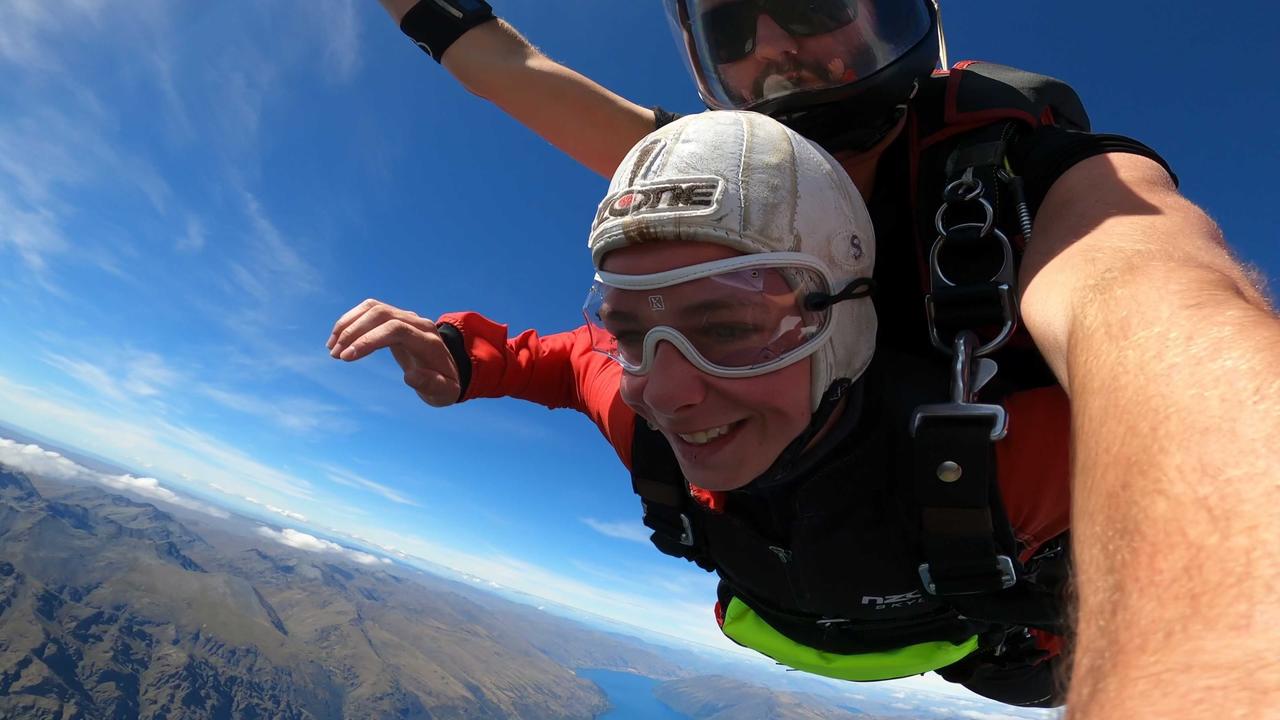
“We were very shocked, very sad, and all the emotions that came with such an unexpected diagnosis,” Ms Wilkes said.
But her quiet teenager’s attitude blew her away.
“Mum reacted worse than I did, I was pretty chill,” Mitchell said.
“He barely broke stride and responded by saying this is what I want to do,” Ms Wilkes said.
With that in mind, instead of focusing on all the things he couldn’t do, his parents started focusing on all the thing he could do.
“Straight away, three things he said was: skydiving, Larapinta Trail, and Everest Base Camp.”
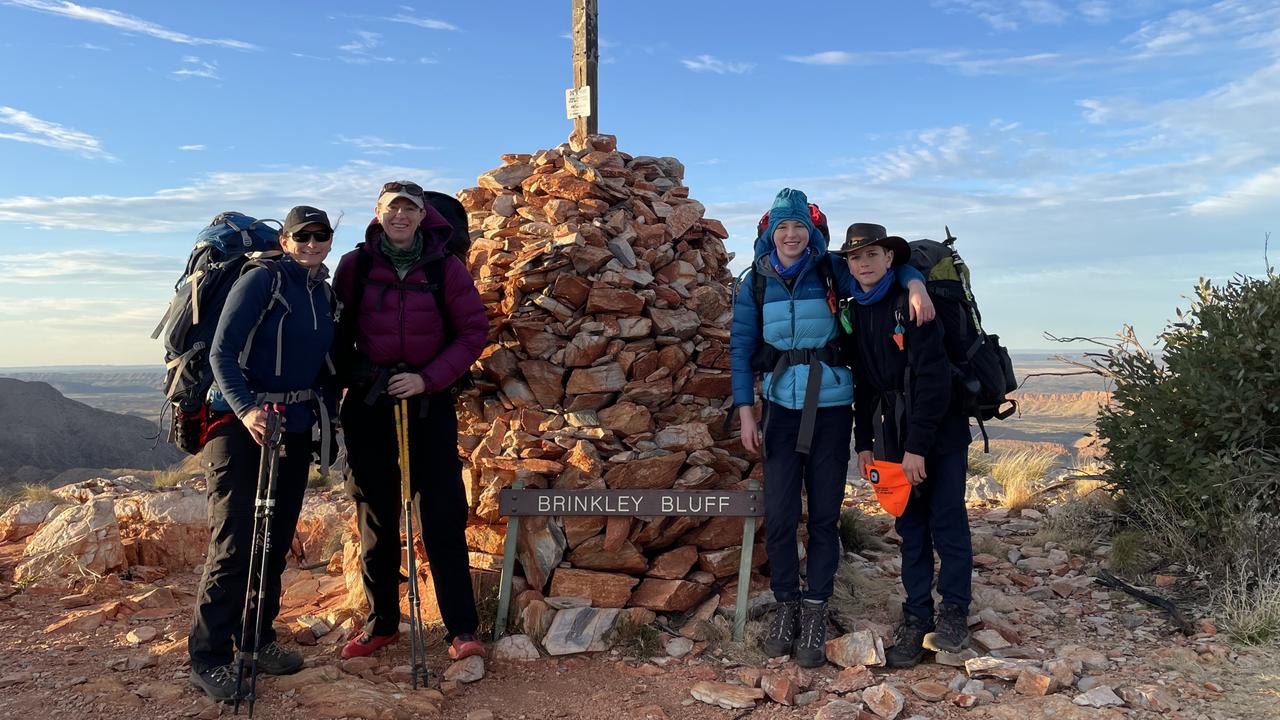
As the family ticked those things off the list the teenager just kept adding to them, the latest being to compete in a triathlon, and has his eyes set on competing in para triathlons in the future.
His mum runs with him, he trains in a familiar pool, and has just started using a tandem bike for cycle training.
He’s now legally blind and uses a white cane to get around in unfamiliar environments, he said with some partial sight it does make it difficult for people to understand his ability.
At school, with assistance from the teachers, a magnifier and computers with text-to-voice, where you touch the screen to hear what is written, Mitchell said he functions quite well, especially in a familiar environment.
Apart from being a regular Year 9 student, he’s also looking to his future, in a way that many of his classmates don’t have to – from figuring out how he can continue playing the piano and saxophone, to independence into his adult life such as cooking and shopping.
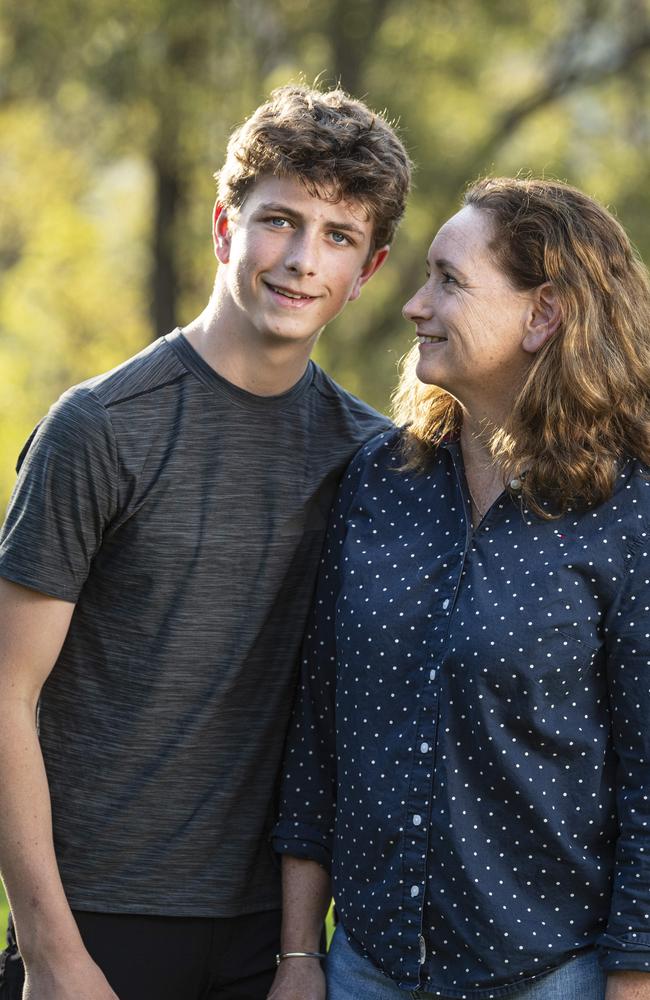
“He may need more support in his future, but for now the role of the interventions that we’re putting in place means we set him up for skills so he can do more things for himself,” Ms Wilkes said.
One support Mitchell is working towards is having a guide dog through Guide Dogs Queensland, which would be a significant factor in helping him maintain his independence.
Apart from being a para-triathlete, Mitchell is still deciding on whether he wants to be a podiatrist, a chiropractor, a film score writer, or a drone pilot.
Ms Wilkes said she is determined to let him explore what he wants to do and can do.
“I don’t try to let anything stop him, but try to allow him to limitlessly explore his abilities, given the right support system,” she said.
More Coverage
